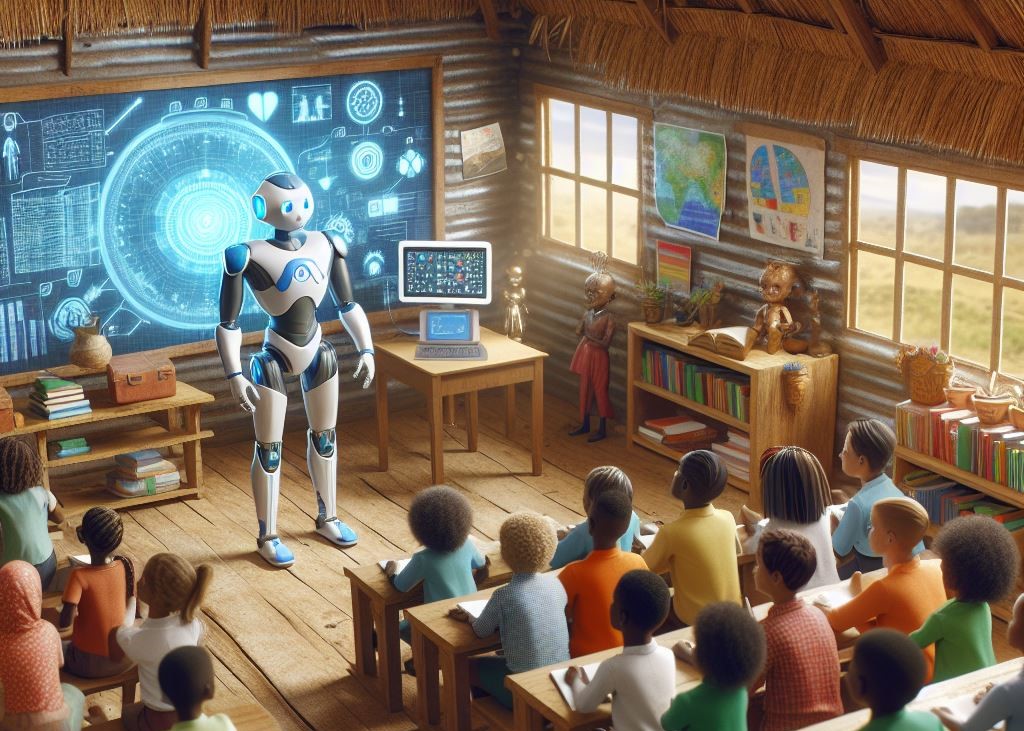Artificial Intelligence
AI can help bridge Africa’s edu gap
Digital technology has invigorated the education sector and innovators within it, writes YESH SURJOODEEN, MD of HP Southern Africa.
Africa’s digital technology landscape is undergoing an exciting transformation, with artificial intelligence (AI) leading the way, holding the potential to significantly speed up the pace of learning across the continent.
The emergence of digital technology, particularly AI, as a key enabler of closing the historic gaps in education access and outcomes for continents with low-to-middle-income countries has invigorated the education sector and innovators within it, driving both economic and social growth.
As evidenced during the Covid-19 pandemic, where schooling disruptions during lockdowns necessitated the move towards hybrid and online learning, digital platforms and tools are transformative for the education sector.
According to research supported by HP, the educational technology industry in Africa has seen an increase in funding from approximately $7.65-million in 2019 to $12.83-million in 2021. This growth in investment empowered the industry to provide quality services and increase its reach across the education system in the continent.
Moreover, and crucially, digital entrepreneurs and innovators are contributing to the achievement of the 2030 Agenda for Sustainable Development (UN SDGs) and the African Union Agenda 2063 (Agenda 2063).
This is especially important in a region such as sub-Saharan Africa where, according to UNESCO’s recent Global Education Monitoring report, “…remains the region with the most children and youth out of school [primary and secondary school], with a total of 98-million children”. It is also the only region where this number is increasing, meaning that out-of-school rates are falling more slowly than the rate at which the school-age population is growing.
By leveraging digital tools that widen education access and embracing AI innovations that streamline the complexities Africa can leapfrog to achieving sustainable gains in education that could be game-changers for emerging economies.
And the beauty of it is that this reality is already taking shape in many countries across the continent today. For example, from a digital perspective, HP LIFE is a free online skills training platform that supports digital entrepreneurship in Africa, empowering students and entrepreneurs through learning in-demand skills and business concepts. It is available in over 200 countries across the world, offering over 2.5-million courses in eight languages – meeting the needs of digital entrepreneurs of today right where they are.
Education is the foundation of any evolution – particularly in the digital world. HP Innovation and Digital Education Academy (HP IDEA) is rooted in this notion and makes education more accessible for both teachers and learners through digital pedagogies fit for hybrid learning. Through its HP Cambridge Partnership for Education EdTech fellowship, HP enables policymakers to grow knowledge and skills to lead impactful EdTech transformations in education systems across their communities, spanning across the Africa, the Gulf countries and Asia.
However, we know that for these innovative strategies to thrive and multiply into even better models, the focus needs to be on joint efforts that address challenges in technology access in education, and that support both learners and teachers. By establishing more information and technology training hubs in schools, especially in rural areas, there can be wider access and digital adoption that propels both people and country to higher levels of achievement in education.
The UN SDGs and Agenda 2063 emphasize the role of the private sector in achieving inclusive and sustainable development and underline the importance of promoting entrepreneurship in Africa. As HP, we endorse the notion of a collective effort in championing Africa’s transition towards AI to promote equal opportunity and leapfrog the continent towards sustainable development – especially for those whose futures depend on it the most, our children.


















